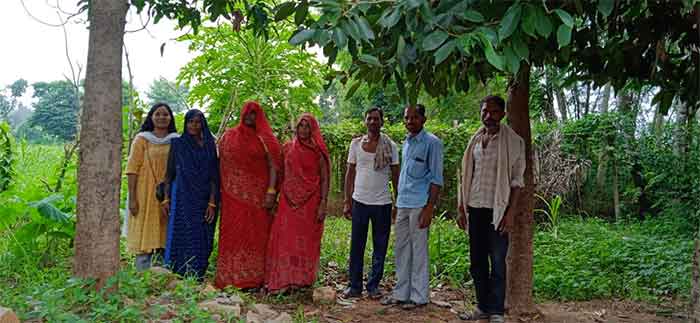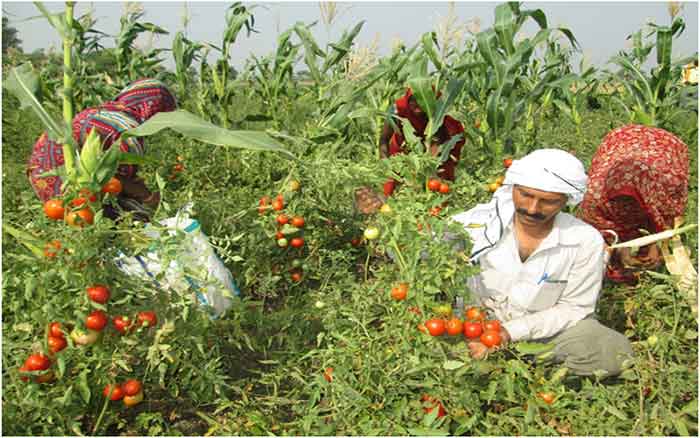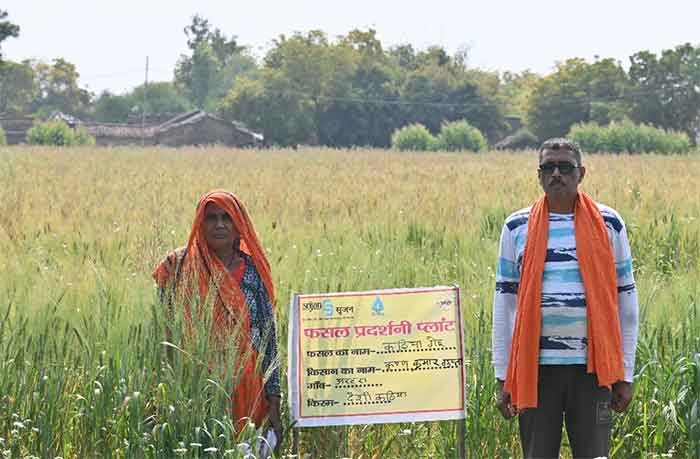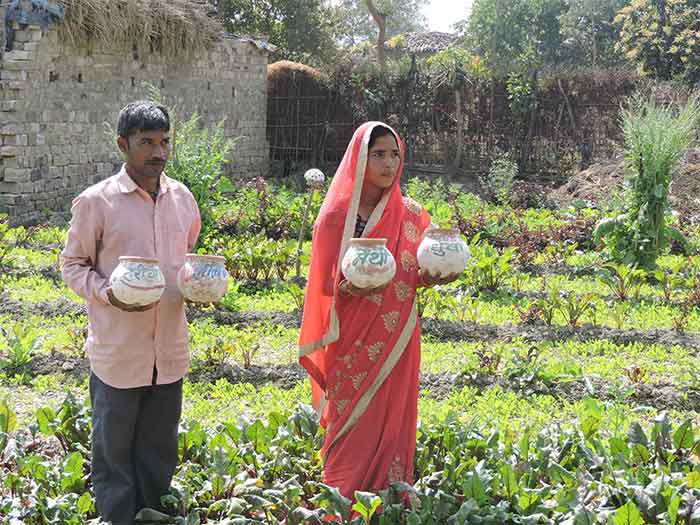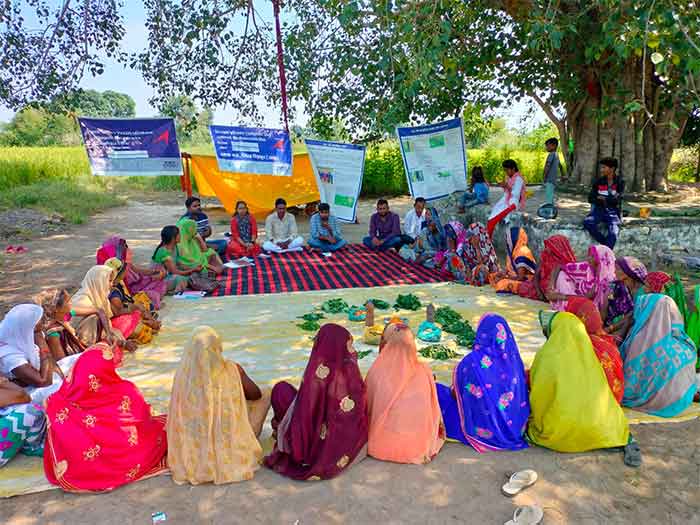
Most farm development efforts focus more on bigger and more dominant farmers, and while they may also include smaller farmers, this gets lesser attention. It is rare to see a program focused mostly on the most marginalized farmers with the smallest holdings.
An ongoing effort in Mau block of Chitrakut district should be welcomed therefore for its efforts to reach out to marginalized farmers. Certainly there is need for this. As some Kol tribal women emphasized in a group meeting, they had only very little land even a few years back but then the situation worsened at the time of ‘chakbandi’ (consolidation of holdings program of government) when in the name of bringing together tiny plots at one place, corrupt officials took bribes from dominant landowners and pushed tribal and dalit farmers to remote corners where land is less fertile.
Given such realities of the power structure, the ongoing program of a voluntary organization SRIJAN has tried within its limits to help marginal farmers with water conservation and sustainable farming efforts which reduce costs while maintaining (or even increasing) productivity.
However even such limited work has to reckon with power realities. What can anyone do if the land nearest to conserved water belongs to a dominant landowner, and so despite the desire to give more benefits to the poorest, inevitably more gains of at least some efforts may go to some of the bigger farmers?
What is heartening is that despite these constraints, the SRIJAN team, working in difficult conditions in remote areas, has been able within a short time of less than two years to establish a relationship of trust with poor and marginalized peasants. This was apparent from a group meeting of women from weakest sections of Guiyan Khurd and Guiyan Kalaan villages. There was a keen discussion on various initiatives that had already been taken by SRIJAN, utilizing a grant from HDFC Bank, within a short span of time and which have been much appreciated as being helpful by the poorest households.
The water conservation work involving cleaning of water tank, digging of ‘doha’ pits in water channels and repair of check dam was taken up at a cost of less than a million rupees and has brought benefits to nearly 100 households, many of them in the category of marginalized families. What is more, nearly 70% of the cost incurred reached these marginal families in the wages paid to them for this work.
Such cost-effective work was possible because of the close involvement of the community. Village development committees have been constituted which meet at regular intervals and help to take forward various initiatives.
This was followed by trainings for natural farming where farmers, particularly women farmers, learnt to make better use of cow dung and cow urine and could give up the use of expensive chemical fertilizers and pesticides.
These farmers are making a shift to natural farming, without reducing their production, while the reduction of costs and improvement of crop quality are very visible. With low costs as well as water conservation and improved recharge, it becomes viable to cultivate very low productivity land which may otherwise be left uncultivated or neglected. Due to the ability to reduce costs, marginal farmers are willing to try new initiatives like multi-layer vegetable gardens and small orchards, while even more of them have taken up kitchen gardens.
Shyam toiled as a laborer in a nearby town on exploitative wages, but he has now decided to concentrate more on his farm. His wife Savita has also emerged as a lead farmer in adopting natural farming. To encourage them, SRIJAN has donated a solar pump to them.
Initiatives based on natural farming to cultivate multi-layer vegetable gardens and small orchards are are making waves in another village Lapaanv. Kiran shows us around her small but highly productive vegetable garden proudly. Here her family has now taken to growing a wide diversity of vegetable, with the help of a green protective net donated by SRIJAN. Her entire family has worked hard to create this garden, as they not only have to cultivate but must also protect the crop from aggressive monkeys. The various vegetables are grown in a mixed farming system in such a way that these can co-exist in a mutually protective sort of way, with the more fragile plants being sheltered by stronger ones.
The quality of vegetables grown using natural farming methods is so reputed already, Kiran says, that shopkeepers come right up to her home or her garden to purchase these. Her father-in-law, Braj Behari, says that till a few weeks back his eye-sight had become so dim that he was arranging to go for surgery ( there is a charitable eye hospital in the area), but after eating organically grown chaulai leafy vegetable daily ( from amaranth plant) for several days his eyesight improved so dramatically that he sees no need for any treatment now. In other villages also some farm family members stated that organically grown vegetables had a good impact on improving eyesight. This family also has a kitchen garden and small orchard located close to their home.

In the same village Asha has a kitchen garden which may be small but has helped to improve her family’s year-round nutrition significantly. In addition, her friends said that Asha also generously gives them vegetables from time to time. A part of the garden is a circle where different vegetables are irrigated by a water channel so designed as to take water to all of them. Asha also preserves her own seeds of various vegetables.
Pushpa, a dalit woman, has just started growing her small kitchen garden and is very enthusiastic about it. Hence in the very first year of this program coming to this village, several poorer families have started joining with much hope, and these hopes are mostly being fulfilled, encouraging yet more farmer households to link up.
Bharat Dogra is Honorary Convener, Campaign to Save Earth Now. His recent books include India’s Quest for Sustainable Farming and Healthy Food, Man over Machine and Protecting Earth for Children.

